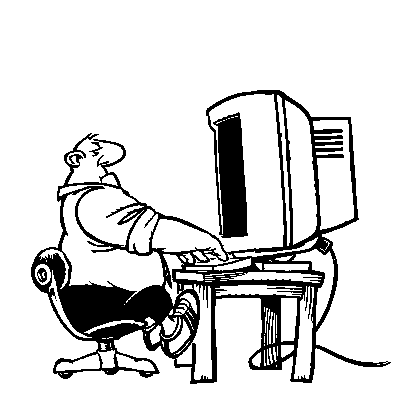Amateur Radio Operations Useful in Many Situations By Angela Nash - 19 Nov 2007
Photo by Stephanie RhodesContrary to what many think, most ham radios are not simple hand held devices.
Amateur radio operators use their ham radios to communicate with others around the world.
"Typically when people think of a radio, they think of the little handheld things people carry around which, yes, they are nice to have and they are beneficial, but that is not where radio stops at all," said Mike Robinson, former president of the BYU Amateur Radio Club.
Ham is a nickname for amateur radio.
"There are lots of rumors of where it [the nickname] started off," said David Springgay, president of the BYU Amateur Radio Club. "The most reliable one that I can think of, and the one that I go with, is that the Navy always got mad at amateur radio operators so they started calling us hams, you know, like pigs."
Ham radios are similar to CB radios, except the frequencies used by ham radio operators are monitored.
"One of the things that ham radio has prided itself on and still does, is the fact that the bands are clean," said Jim Manookin, faculty advisor to the BYU Amateur Radio Club. "CB radio operators don't have an organized way of controlling their band space."
Because CB radio band space is not controlled, inappropriate material is often heard.
"There are vulgarities, off-colored stories and bad language," Manookin said. "One of the things that we judiciously try to avoid is that kind of language and that kind of use of our radio bands. It is illegal to swear on the radio. It is bad practice to say anything disparaging."
The use of ham radios is regulated by the Federal Communications Commission.
"Without regulation, it would be chaotic, much like CB's," said Chris Black, the communications and IT specialist for the University Police.
One way the Federal Communications Commission regulates the use of ham radios is by requiring all amateur radio operators to have a license to use a ham radio.
"The FCC controls those frequencies," Springgay said. "They want to make sure you know proper etiquette ... and they want to be sure you know how to use them, that you know the rules and you know some basic theory, radio theory."
There are many reasons to become a licensed ham radio operator.
"One of them is to promote the radio art, which kind of means to promote the brotherhood, the camaraderie that exists in the ham radio community," Manookin said.
For many ham radio operators, it is a hobby. For others, it is a way to provide service.
"The reason you would want one, is you can do a lot of service in the community, being able to assist in emergencies, because unlike cell phones, they don't go down," said Robinson.
Ham radios have been used in several national disasters, including hurricane Katrina and Sept. 11.
"In the 9/11 disaster, when the twin towers came down, there were, on the top of the twin towers, a number of communications facilities ... and when the towers came down all that communications infrastructure failed," Manookin said. "And so, one of the most valuable services was the quick response of ham radio operators in that area and the surrounding area who came in ... and established, at least a basic emergency infrastructure of communications that was invaluable during that disaster response."
How to become a licensed Ham radio operator:
1) Contact the BYU Amateur Radio Club (radioclub.byu.edu) for help in preparing for the exam.
2) Study for the exam. The question pool can be found online at http://www.arrl.org/arrlvec/pools.html.
3) Take the exam. To find upcoming exams, use the exam locator on the Amateur radio relay league web-site http://www.arrl.org/arrlvec/examsearch.phtml.
4) Purchase a radio. The BYU Amateur Radio Club also lends radios to its members.
Tuesday, November 27, 2007
Subscribe to:
Posts (Atom)
